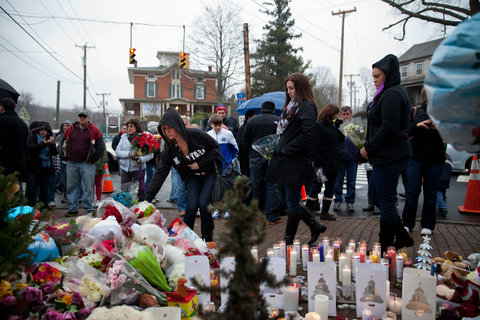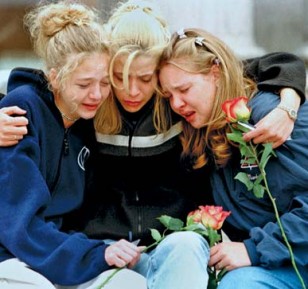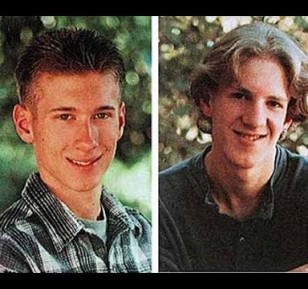I hope everyone had a wonderful weekend. I’m very excited about the next one because I get to meet up with the Houston CE peeps on Saturday. If you want to come, just show up at Jason’s Deli, 10321 Katy Freeway, Houston, TX 77024 at 2:00 PM that day. We’ll eat and then go back to my place to play with Erik and have a fun time, in general. Feel free to bring your favorite beer or wine!
In today’s tour planning conference call, we were toying with the question of how many days to host the event in each city, and I’d love to have your feedback. Option #1 is to have the Erik trance channeling Friday evening, the have a full day Saturday and finish off with Sunday, ending off at noon so everyone can catch their flights home. I like this option because we get two evenings to chill together by a fire, the pool or wherever. Option #2 is to start with a full day Saturday and until noon Sunday. Option #3 is to have a one day event all day Saturday. Of course, the less time, the cheaper the tickets will be but there is a trade-off. Help me out by choosing your favorite option in this poll!
I know you all have been waiting with baited breath for Part Two of the Columbine Shooters interview, so I hope this meets your expectations!
Me: What about your childhood? Did you have good parents? Did they do the best they could?
Dylan: It was rough. Growing up, I was difficult for my parents, and the older I got, the more expressive I got and the less they were able to help. Then they weren’t sure what to do.
Dylan looks at Kim and talks to her directly.
Dylan: I know this is hard. I know this is hard.
Kim: He’s conveying how much anger he had, and it’s making me shake.
Me: Aw.
Kim: At the same time, it’s out of love. It’s not like he’s stuck in that anger now. Then he talks about his partner. It’s like Dylan thinks he had all the ideas as far as how they were going to plan the attack.
Dylan: I started with a lot of the ideas, and I brought my friend along for the ride. Once I shared my ideas, it clicked with him. We gravitated toward each other in our anger and frustration, and it made us sick, emotionally, physically, how people could randomly be happy. Those were our targets.
Me: That’s horrible. Did y’all know you were going to die?
Dylan: Fifty/fifty. We kind of knew it would be a possibility that the law would take us down, and we knew we had big intentions to create mass destruction, but a huge part of me didn’t believe we could do that. I knew I wanted to, and I was going there to do it, but a part of me still didn’t believe I was capable of it. So when it actually happened, it was like bulldozing the situation. Once it started, I couldn’t stop.
Me: Were you scared?
Dylan: Very! In those moments when you realize the destruction that you’re causing, becoming “your worst enemy” doesn’t justify how sickened you are by your own actions and how scared you are of yourself. I felt, in those moments, completely separated from who I am. Growing up, I had emotional instability, but you always think of murderers as monsters completely separate from yourself. In those moments, I flashed back to my childhood, and I was having this out of body experience. I was viewing myself. It was me looking at my actions through my child eyes, and I was scared to death of who I had just become.
Me (sadly): Yeah.
Dylan: I felt like I had completely separated from my own self, but once I started, I was stuck. I was stuck on keeping going and doing as much as I could until lights out.
Me: They took their own lives. Were you afraid to pull the trigger and take your life? I guess you took your life! That’s what it says in Wikipedia. I read it just before the session.
Dylan: I wasn’t afraid to die more so because I had separated from myself and my emotions. It was like a complete blackout state of emotions. I was numb. Nothing affected me in those moments. I didn’t feel anything.
Me: Was there one incident that triggered you to think, “Hey, we’re going to do this?” Did someone make fun of you? Did a girl spurn your affections?
Kim: He said, “Yes.” Then he said, “Blah, blah, blah pissed me off,” so I’m trying to figure out what he said. I couldn’t understand him.
Me: A friend? A peer?
Dylan: I thought it was a friend.
Me: Oh!
Kim: It almost feels like—he’s talking about two things. Two things pissed him off. He’s talking about an instructor, a teacher—
Dylan: I thought they had my back.
Kim: This is hard.
Dylan: I thought they had my back.
Kim: He makes me feel like he was not doing well in the class, but he was cool with his teacher, so he thought the teacher was going to get him through, but grades came back, and—
Dylan: My marks weren’t pretty, so I felt betrayed and that triggered spite and anger.
Kim: Then there’s also a connection to a female. I think she’s just a friend. I don’t feel like she’s a girlfriend, just a close female relationship.
Dylan: I felt betrayed again, but it wasn’t intentional from her. It was more like I was betrayed because other people could make her happy, and I didn’t understand that because nobody could make me happy. I couldn’t be happy with a friend. I couldn’t get to that place where she could. For a while, I thought I was the source of her happiness, but when I started to see her happy with her friends and other people, I felt very –
He places both hands in front of him, palms down, with the right hand higher than the left.
Dylan: Here’s my value with her, and when I saw her and how other people could make her happy, it lowered my self-worth.
He drops his right hand.
Dylan: It wasn’t that I was pissed off at her. I was angry at myself. I created all of it.
He points to his head.
Dylan: I thought I was capable of making someone happy, but it was my own inability to connect and make myself happy that ultimately disgusted me time and time again. I just couldn’t see it that way. I always thought it was outside of me: other people and relationships.
Me: Eric Harris, do you have anything to say about the human side of this? I’ll get to the spiritual side next, but, Dylan, I want Eric to have a chance to talk.
Kim: Eric Harris steps forward. He comes across as very mature and neutral. He doesn’t express a whole lot of emotion. He’s at a very healed state. It’s like he has a much bigger understanding of everything now. It’s almost like he’s a dad. He’s coming across as very intellectual and understanding. He’s giving me that mentor type of feeling.
Eric: On the human aspect of it (he points to his heart) I had my own problems, my own issues. It didn’t feel nearly as severe as Dylan’s, but I felt, in my life, I was very misunderstood. It’s not like I had any mental illness. I was just constantly misunderstood so I felt anger and aggression.
Me: What did they not understand about you?
Eric: I relate a lot to your Erik. When I tried to talk to people and I tried to build relationships, they just couldn’t see me for who I was. They couldn’t hear what I was trying to say mostly because of the way I looked to people. They couldn’t get past my image to let me in.
Me: His physical appearance?
Kim: Yeah.
Me: Okay.
Kim: Yeah, there was something about the way he looked.
Me: I don’t remember what they looked like.
Kim: I don’t either, but there was something about his image that people would trip up over.
Eric: Any time I sat down and tried to talk to people or connect to them, I’d have a hard time connecting to them and vice versa.
My Erik’s motor and verbal tics had the same effect on people. Many just couldn’t look past them to see Erik for the incredible person he was.
Eric: Any time I had a conversation with family members or friends, I would externalize everything, and I had a hard time relating to what people were talking about. So every time I’d have a conversation or chill with my friends, I still wasn’t really connecting. I didn’t feel anything. That led to frustration. I felt misunderstood because I couldn’t express myself like I wanted to. It’s not like I just went along for the ride—I don’t mean to put what happened lightly—but when Dylan and I got together, I thought, ‘Okay, this is going to be my outlet. People don’t want to understand me, so this is a way that I can make them understand me.’ It gave me the sense of power and control I felt like I didn’t have. I had such a barrier in communicating, and I knew something like this—communicating in this way—would not be misunderstood.
Kim: He’s very emotional, showing a lot of remorse for what he did.
Part Three will finish up this eye-opening interview.




